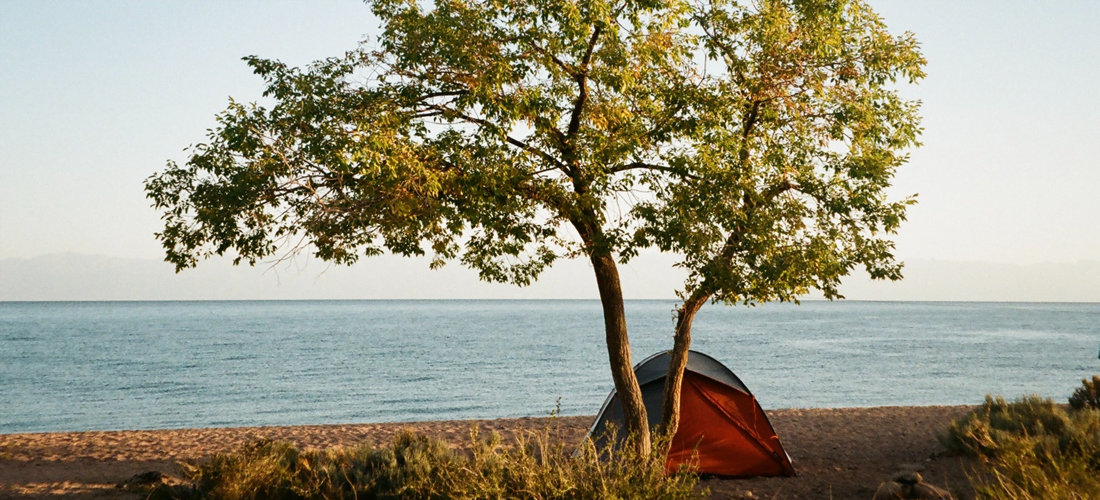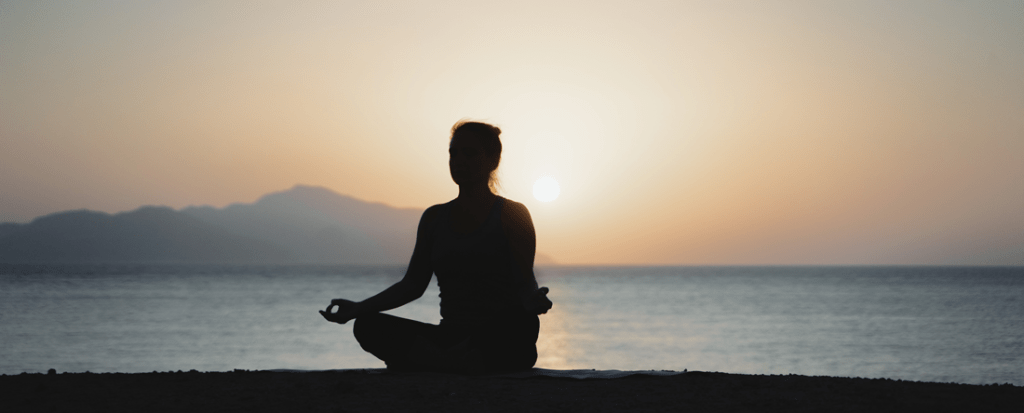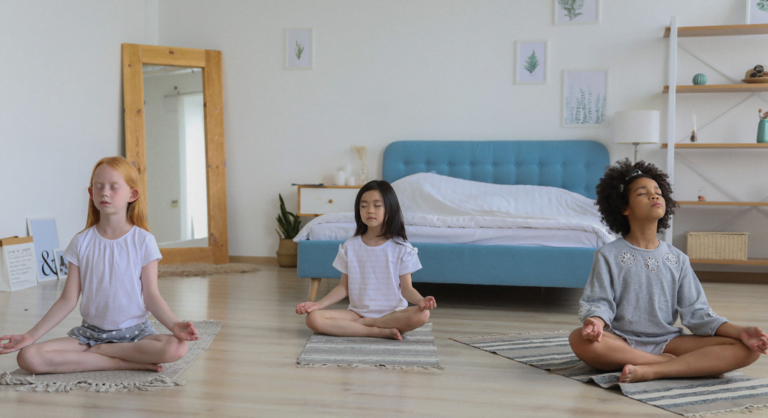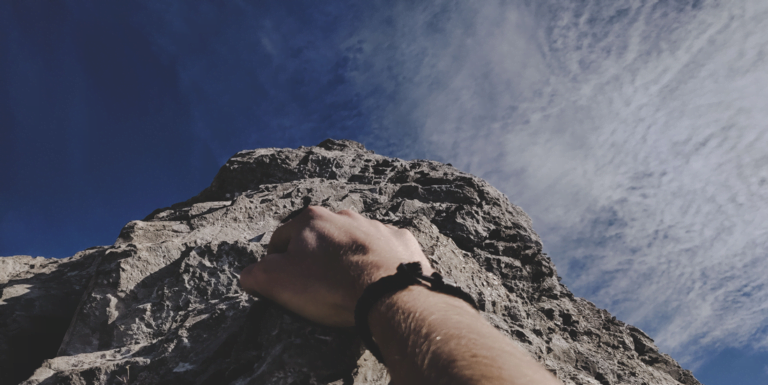Camping alone can be an empowering experience, a journey of self-discovery, and a unique way to truly embrace solitude. It’s not just about the crackling campfire or the rustling leaves. It’s about the special connection you create with nature when you’re the only human around. In this blog post, we’ll explore the magic of camping alone. Unpacking the fears, dispelling the myths, and offering insights on how to connect with nature on your solitary venture. So, grab your tent and your sense of adventure. Let’s dive into the profound experience of embracing solitude through camping alone.
The Benefits of Camping Alone
Camping alone offers a unique set of benefits that can have a profound impact on your physical, mental, and emotional well-being. Here are some of the key advantages:
1. Mental and Emotional Recharge
- Escape from Daily Noise: In our everyday lives, we are incessantly bombarded with a variety of sounds – traffic, workplace chatter, household appliances, digital notifications, and more. This constant noise can be physically and mentally draining, leaving us craving moments of silence.
When you camp alone, you step away from this daily noise, immersing yourself in the tranquil sounds of nature. The chirping birds, the rustling leaves, the gentle flow of a nearby stream. These natural symphonies help to calm the mind, promote relaxation, and enhance our concentration.
This peaceful environment provides a much-needed break from the cacophony of our daily routine. Thus, proving that embracing solitude through camping alone can be a tremendously therapeutic experience. - Reconnect with Yourself: When you camp alone, you remove yourself from external distractions and shift your focus inward. This solitude enables you to reflect upon your thoughts, emotions, and life goals without interruption. You can start to understand your strengths, weaknesses, and aspirations more clearly.
The tranquility of nature can provide a calming backdrop, facilitating introspection and self-awareness. Thus, camping alone in nature becomes not only a recreational activity but also a journey of self-discovery and personal growth.
2. Self-Reliance and Personal Growth
- Develop Survival Skills: As you venture into the wilderness with only your camping gear, you’re likely to face various challenges that require problem-solving and resourcefulness. Whether it’s setting up your tent, starting a fire, or navigation, these skills get honed each time you camp alone.
This unique learning experience can foster self-reliance and confidence. Making you better prepared for unexpected situations, both in the wilderness and in everyday life. Camping solo is more than an escape; it’s a lesson in survival and self-sufficiency. - Confidence and Independence: Being solely responsible for setting up your tent, creating a fire, and cooking your meals, all in the midst of nature’s quiet solitude, can instill a deep sense of self-reliance. Each successful trip enhances your ability to trust your skills and judgments.
This fosters a sense of confidence that permeates all areas of your life. Moreover, solitude in nature facilitates self-discovery. It provides an opportunity for reflection, free from the noise and distractions of daily life. This journey of self-reliance and self-awareness uniquely combines to cultivate a strong sense of independence. Thus, embracing solitude through camping alone is a powerful medium for personal growth and self-empowerment.
3. Deepening the Connection with Nature
- Observing Wildlife and Natural Rhythms: When you’re alone in the wilderness, it’s not just about the stillness outside, but the silence within that enables you to become more attuned to the rhythms of nature. You are more likely to notice the delicate flutter of a butterfly’s wings, the mysterious rustling of leaves, or the soothing hum of a distant waterfall.
The orchestra of nature sings its most authentic tunes when you are alone to listen. This experience fosters deep connections with the natural world, creating a sense of peace, mindfulness, and respect for the environment. Things which are often overshadowed by the hustle and bustle of modern life. - Minimizing Environmental Impact: When we camp alone, we naturally limit the amount of waste and disturbance we create. Compared to camping in groups, camping alone has a smaller environmental footprint. Solo camping encourages a minimalist approach, taking only what we need and leaving as little trace as possible.
This mindset reduces our tangible, physical impact on the environments we visit. It also fosters a genuine appreciation for nature’s fragility and beauty. Over time, this appreciation can lead to more conscious environmental choices in our everyday lives. Thus, amplifying the positive impact of our solitary sojourns in nature.
4. Silence and Solitude
- Disconnecting from Technology: In this digital age, we are incessantly bombarded with notifications, messages, and information that can lead to sensory overload. Camping alone offers a much-needed respite from this onslaught. Being out in nature, far from Wi-Fi signals and cellular towers, allows us to take a break from the screens and enjoy the simplicity of the natural world.
This digital detox helps reduce stress, improves sleep, and fosters a deeper connection with the environment around us. It’s a chance to be truly present in the moment, to listen to the rustling leaves, the chirping birds, and the gentle whisper of the wind. It’s an opportunity to rekindle our relationship with nature, and in turn, with ourselves. - Practicing Mindfulness and Meditation: In the serene setting of nature, away from the constant buzz of the urban environment, one can truly connect with their inner self. The natural rhythm and sounds of the wilderness serve as a perfect backdrop for meditation and mindfulness exercises.
By camping alone, you are afforded the unique opportunity to practice these exercises uninterrupted, enabling you to cultivate a deeper sense of self-awareness and tranquility. Furthermore, the act of setting up camp, cooking your meals, and navigating your surroundings can be invigorating mindfulness exercises in themselves, bringing you into the present moment and fostering a profound connection with nature.
5. Freedom and Flexibility
- Setting Your Own Pace: Setting your own pace is a significant benefit of embracing solitude through camping alone. In the daily hustle and bustle of life, we often dance to the rhythm of external obligations, rarely finding the time to pause, reflect, and simply live at a pace that is truly our own. When camping alone, you become the master of your own time. You decide when to wake up, when to hike, when to sit quietly by the fire, and when to sleep.
This independence gives you the freedom to connect with nature at your own tempo, fostering a deep sense of peace and self-awareness. It’s a profoundly liberating experience that allows you to align yourself more closely with the natural rhythms of the earth, enhancing your appreciation of the simple and authentic aspects of life. - Choosing the Experience: Unlike group camping trips where decisions are often made collectively, camping alone affords you the freedom to tailor your adventure precisely to your own tastes and comfort levels. Want to wake with the sun and spend all day hiking? You can. Prefer to lounge in your hammock with a good book? That’s an option too.
Embracing solitude in nature allows you to step away from societal pressures and expectations, offering an opportunity to tune into your own desires, rhythms, and needs. This freedom to choose your own experience not only enhances the enjoyment of the camping trip but also fosters personal growth and self-discovery.
6. Uninterrupted Reflection and Creativity
- Journaling and Reflection: Journaling and reflection become incredibly impactful when embracing solitude through camping alone. The calm and serenity found in nature provide an ideal space for introspection, allowing one to delve deeper into their thoughts and emotions. Amid the quiet whispers of the wilderness, journaling becomes a meditative process, enabling self-discovery and promoting mental clarity.
It’s a unique opportunity to disconnect from the digital world and reconnect with oneself. The act of writing, of articulating your thoughts on paper, coupled with the tranquility of a solitary campsite, can be a profound and therapeutic experience, fostering personal growth and enhancing self-understanding. - Inspiration and Insight: Embracing solitude through camping alone can lead to profound inspiration and insight. Away from the noise and distractions of daily life, you find yourself surrounded by the raw beauty of nature, which has a way of sparking creativity and stimulating deep thought.
As you sit by the campfire watching the flames, or lay in your tent listening to the sounds of the night, you’ll likely find yourself reflecting on your life, your goals and your purpose. You might also find yourself inspired by the simplicity of nature, realizing that happiness can be found outside of material possessions and societal expectations.
Essentially, solitude provides an environment conducive to self-discovery and self-understanding, offering insights and inspirations that might not have emerged within the confines of your everyday environment.
7. Enhanced Problem-Solving Skills
- Facing Challenges Independently: In the absence of companions, you are compelled to rely on your abilities to troubleshoot problems, be it setting up a tent, lighting a fire under adverse weather conditions, or navigating unfamiliar trails. Each task demands mental agility, resourcefulness, and patience. This process not only bolsters self-confidence but also cultivates resilience.
These challenges provide an opportunity for one to learn new skills, fostering growth and self-improvement. Overcoming hurdles solo underscores that one is capable of far more than one might assume, a realization that can seep into other aspects of life.
8. Quality “Me” Time
- Self-Care and Relaxation: In the hustle and bustle of everyday life, we frequently forget to stop, breathe, and take care of ourselves. When you’re alone in nature, away from the constant distractions of technology and societal obligations, you’re given an invaluable opportunity for self-care. The calming sounds of the forest, the soft glow of the campfire, and the peaceful solitude allow your mind to unwind and focus on the present moment.
This intimate connection with nature acts as a form of meditation, reducing stress levels, and rejuvenating your mental well-being. Therefore, camping alone is not just about isolation, but an act of self-care and relaxation, a therapeutic retreat that restores balance to your life.
Camping alone offers a range of benefits, from mental and emotional rejuvenation to personal growth and a deeper connection with nature. It provides a valuable opportunity to disconnect from the chaos of modern life and find solace in the natural world while fostering self-reliance and introspection.
Preparing for a Solo Camping Trip
Preparing for a solo camping trip requires careful planning and consideration of various factors to ensure your safety and enjoyment. Here are the steps you should take:
1. Choose the Right Location
- Research: Start by researching potential camping destinations. Consider factors like proximity, terrain, and the level of solitude you desire.
- Safety: Ensure the area you choose is safe for solo camping. Check for any regulations or permits required for camping in that location.
2. Gear and Equipment Essentials
- Tent and Sleeping Gear: Invest in a reliable, easy-to-set-up tent and a suitable sleeping bag. Ensure they are appropriate for the weather conditions you expect.
- Cooking and Food: Pack a portable camping stove, utensils, and lightweight cookware. Plan and pack your meals accordingly, focusing on non-perishable items.
- Navigation Tools: Carry a map, compass, GPS device, or smartphone with GPS capabilities. Ensure you know how to use these tools effectively.
- Clothing: Dress in layers appropriate for the weather conditions. Don’t forget rain gear, extra socks, and a warm jacket.
- Safety Equipment: Bring a comprehensive first-aid kit, a multi-tool or knife, a flashlight with extra batteries, and a fire starter.
3. Leave No Trace Principles
- Respect the Environment: Familiarize yourself with Leave No Trace principles, which emphasize minimal impact on the environment. Dispose of waste properly and follow any specific rules for the area you’re camping in.
- Pack It In, Pack It Out: Bring trash bags and carry all your waste, including trash and used toilet paper, out of the camping area.
4. Practice Camping Skills
- If you’re new to camping or haven’t camped solo before, practice setting up your tent, starting a fire, and cooking simple meals at home or in a controlled environment.
- Hone your outdoor skills, including navigation, wildlife safety, and basic first aid.
5. Plan Your Route and Schedule
- Create a detailed itinerary that outlines your planned route, daily mileage, and camping locations.
- Set a schedule that allows for plenty of daylight hours and avoids hiking or setting up camp in the dark.
6. Pack Light and Smart
- Minimize unnecessary gear to keep your backpack manageable. Remember that you’ll be carrying everything yourself.
- Prioritize essential items like food, water, shelter, and safety gear.
7. Test Your Equipment
- Before leaving, check all your gear to ensure it’s in good working order. Test your stove, headlamp, and other equipment to avoid surprises in the field.
By following these steps, you can adequately prepare for a solo camping trip, ensuring your safety and enhancing your overall experience in the wilderness. Always prioritize safety and responsible outdoor practices while enjoying the solitude of solo camping.
Safety First
Solo camping can be a rewarding and transformative experience, but it also comes with unique safety considerations. Here are some essential safety tips for solo camping:
Plan and Communicate
- Share Your Plans: Before heading out, inform a trusted friend or family member of your camping plans, including your itinerary, expected return date, and the location of your campsite.
- Emergency Contacts: Provide your emergency contact with a list of phone numbers for local authorities, park rangers, or any relevant wilderness services.
Choose a Safe Location
- Research the Area: Select a camping location that is well within your skill level and comfort zone. Consider factors like terrain, weather, and wildlife in your decision.
- Check Regulations: Ensure you are aware of and adhere to any regulations or permits required for camping in the chosen area.
Safety Gear and Essentials
- First Aid Kit: Carry a comprehensive first aid kit and know how to use it. Include items for treating common injuries like cuts, sprains, and insect bites.
- Navigation Tools: Bring a map, compass, GPS device, or smartphone with GPS capabilities. Familiarize yourself with the area’s topography and landmarks.
- Emergency Communication: Carry a fully charged cell phone, satellite communication device, or emergency locator beacon for calling for help in case of emergencies.
- Lighting: Pack a reliable headlamp or flashlight with extra batteries.
Wildlife Safety
- Know Local Wildlife: Research the wildlife in the area and understand how to behave around them. Learn how to safely store food to avoid attracting animals to your campsite.
- Bear Safety: In bear country, carry bear-resistant food containers or use proper bear bagging techniques to store food. Know how to respond to bear encounters (e.g., carrying bear spray).
Weather Awareness
- Check the Forecast: Monitor weather forecasts for the duration of your trip. Be prepared for sudden changes in weather, especially in mountainous or remote areas.
- Appropriate Clothing: Dress in layers and bring clothing suitable for the expected weather conditions, including rain gear and extra warm layers.
Campsite Safety
- Campsite Selection: Choose a safe and legal campsite, following Leave No Trace principles. Avoid setting up camp in low-lying areas prone to flooding or under dead trees.
- Fire Safety: If campfires are allowed, follow proper fire safety protocols. Keep fires small, and never leave them unattended. Be prepared with a fire extinguisher or water source.
- Set Up Early: Arrive at your chosen campsite with plenty of daylight to spare, allowing you to set up camp and complete tasks before it gets dark.
Food and Water Safety
- Water Treatment: Purify or filter water from natural sources to avoid waterborne illnesses. Carry an ample supply of clean water or know where reliable water sources are located.
- Food Storage: Store food securely to prevent attracting wildlife to your campsite. Use bear canisters, bear bags, or designated food storage lockers where required.
Emergency Protocols
- Stay Calm: In any emergency situation, remain calm and think clearly. Panic can exacerbate the problem.
- Signal for Help: In case of an emergency, use your communication device to signal for help, or employ other signaling techniques such as whistles, mirrors, or fire.
- Know Your Location: If you need to call for help, provide rescuers with your exact location and any pertinent information about your condition.
Self-Awareness
- Trust Your Instincts: If something doesn’t feel right or you sense danger, trust your instincts and take appropriate precautions.
- Maintain Situational Awareness: Be mindful of your surroundings and any changes in the environment, weather, or wildlife behavior.
- Practice Skills: Before embarking on a solo camping trip, practice essential outdoor skills such as navigation, first aid, and fire building. Confidence in these skills enhances your safety.
Remember that safety is paramount when camping alone. Proper preparation, knowledge, and responsible behavior will contribute to a safe and enjoyable solo camping experience.
Conclusion
Camping alone offers a unique and enriching experience that goes beyond mere adventure—it’s a journey of self-discovery and a profound way of embracing solitude in nature. By escaping our daily routines and immersing ourselves in the tranquility of the wilderness, we get the opportunity to reflect deeply, and connect with our inner selves. Remember, solitude isn’t about being alone; it’s about being comfortable with oneself. So, pack your gear and let nature be your guide on this extraordinary journey of solitude and self-exploration.









